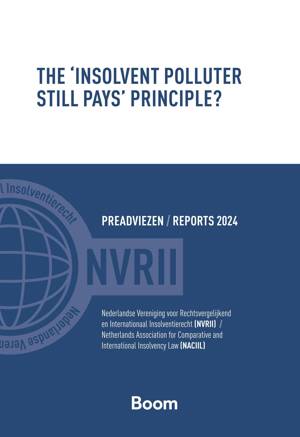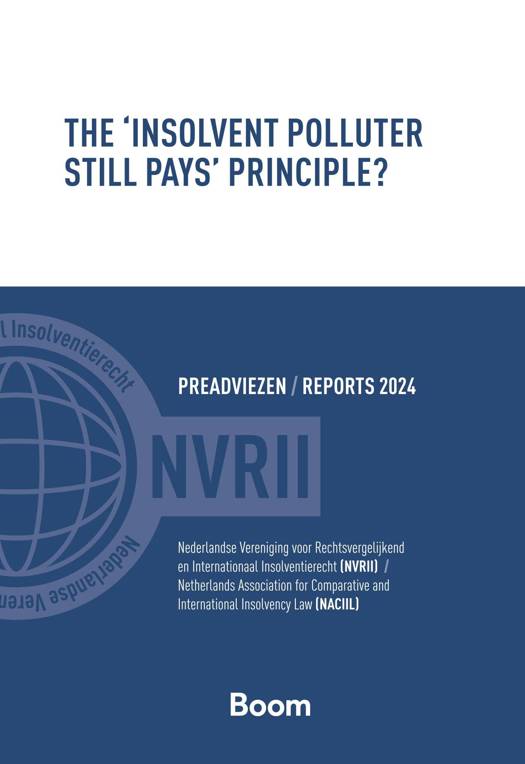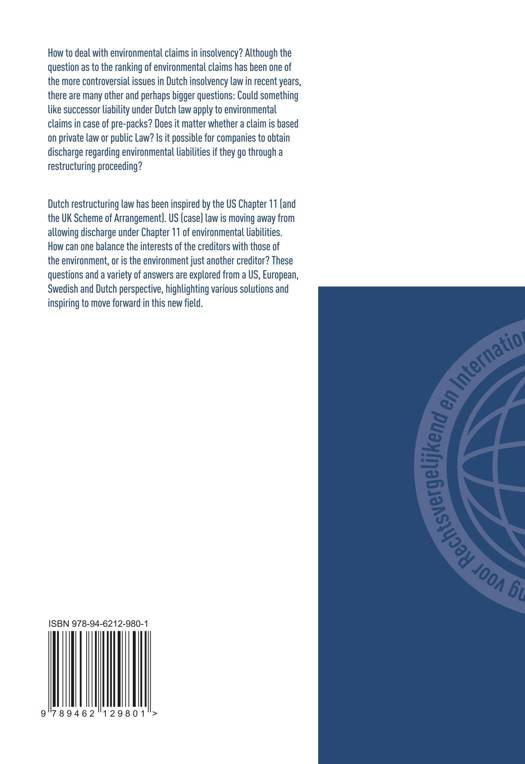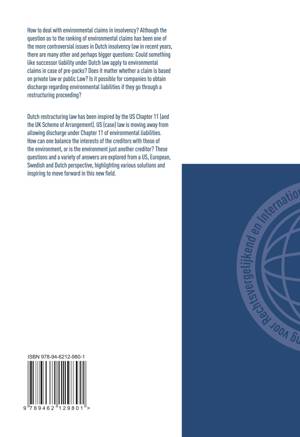
- Afhalen na 1 uur in een winkel met voorraad
- Gratis thuislevering in België vanaf € 30
- Ruim aanbod met 7 miljoen producten
- Afhalen na 1 uur in een winkel met voorraad
- Gratis thuislevering in België vanaf € 30
- Ruim aanbod met 7 miljoen producten
Zoeken
Omschrijving
How to deal with environmental claims in insolvency? Although the question as to the ranking of environmental claims has been one of the more controversial issues in Dutch insolvency law in recent years, there are many other and perhaps bigger questions: Could something like successor liability under Dutch law apply to environmental claims in case of pre-packs? Does it matter whether a claim is based on private law or public Law? Is it possible for companies to obtain discharge regarding environmental liabilities if they go through a restructuring proceeding? Dutch restructuring law has been inspired by the US Chapter 11 (and the UK Scheme of Arrangement). US (case) law is moving away from allowing discharge under Chapter 11 of environmental liabilities. How can one balance the interests of the creditors with those of the environment, or is the environment just another creditor? These questions and a variety of answers are explored from a US, European, Swedish and Dutch perspective, highlighting various solutions and inspiring to move forward in this new field.
Specificaties
Betrokkenen
- Auteur(s):
- Uitgeverij:
Inhoud
- Aantal bladzijden:
- 132
- Taal:
- Engels
- Reeks:
Eigenschappen
- Productcode (EAN):
- 9789462129801
- Verschijningsdatum:
- 6/12/2024
- Uitvoering:
- Paperback
- Afmetingen:
- 165 mm x 240 mm
- Gewicht:
- 230 g

Alleen bij Standaard Boekhandel
+ 106 punten op je klantenkaart van Standaard Boekhandel
Beoordelingen
We publiceren alleen reviews die voldoen aan de voorwaarden voor reviews. Bekijk onze voorwaarden voor reviews.













